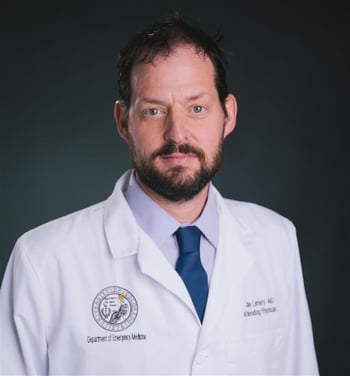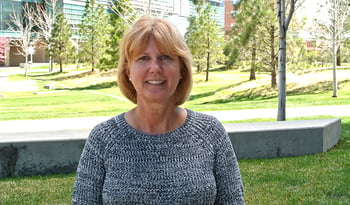Doctors see it every day in clinics and emergency rooms around the world: the ever-worsening effects of climate change on human health.
Whether it’s smoke inhalation from raging wildfires or the effects of extreme heat on patients with diabetes or heart disease, climate change has a negative impact on people around the globe — many of them in communities already vulnerable to socioeconomic factors.
Jay Lemery, MD
“The scary thing is we know this is human-caused, and we know it’s getting worse,” says Jay Lemery, MD, professor of emergency medicine at the University of Colorado School of Medicine. “And we know there’s no end in sight to how bad it could get.”
That’s why the CU School of Medicine recently launched a new Climate & Health Program to educate healthcare professionals on how to better understand the effects of climate change on health. Led by Lemery and Rosemary Rochford, PhD, professor of immunology and microbiology, the Climate & Health Program also funds a fellowship for physicians who wish to become thought leaders and media experts on climate change effects.
“There exists both a need and an opportunity for physicians and healthcare practitioners to dispel myths and to provide accurate, dispassionate risk information on climate change and its related health impacts,” Rochford says. “To get there, though, we need to train healthcare leaders in climate and health science and practice. And we need to reach out to both our campus community and local community to educate and engage in a discussion on the impact of climate change on human health.”
Educating and advocating
“We think this is a significant health threat that has been underrecognized, and our whole job is to bring forth the best science,” Lemery says. “We’re not political, nor do we want to be. I can talk a little about policy, but I’m not a policy expert. I’m a health expert, and that’s the core of what we want the messages to be. They’re health messages.”
That said, one aim of the Climate & Health Program is to advocate for policies that combat climate change and its associated health effects. As Rochford puts it, “the impacts of climate change on human health are happening now and are no longer theoretical. We are facing an existential crisis.”
Power of partnerships
Rosemary Rochford, PhD
The program also draws on partnerships with Colorado’s vast array of organizations with climate-science expertise — among them the National Oceanic and Atmospheric Administration, the National Center for Atmospheric Research and Colorado School of Mines — to further opportunities for research and a greater understanding of the problem.
“Changes in climate conditions create complex health issues that cross national boundaries and span the globe,” says Peter Buttrick, MD, senior associate dean for academic affairs and head of the Division of Cardiology in the Department of Medicine. “The Climate & Health program will educate and focus research by our faculty to help improve the quality of care for all. This is an important and defining health issue, and this program will allow School of Medicine faculty to become national leaders.”
-1.png)




